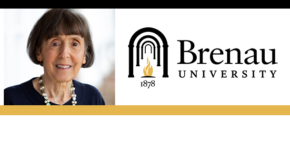 How do we connect with different age groups when using online learning?
How do we connect with different age groups when using online learning?
Billi Bromer, professor in the college of education at Brenau University, looks into this question.
Dr. Billi L. Bromer, is a Professor in the College of Education at Brenau University in Gainesville, Georgia. She teaches a range of undergraduate and graduate courses in Brenau’s online educator preparation program. She is a member of multiple professional organizations related to education and child development. She has presented numerous papers at state, national and international educational conferences on a variety of topics related to educator preparation and child development. She has also authored multiple book chapters and recently co-edited the Handbook of research on learner-centered practices in an age of transformational change. IGI Global. https://www.igi-global.com/book/handbook-research-learner-centered-approaches/288797 Dr. Bromer is especially interested in the importance of the social elements of online learning for students of all ages.
What Are Post-Traditional Online Students Telling Us?
Students of all ages are often enrolled in online education. They can represent multiple generations including Generation Z (those born after 1995), Millennials/Generation Y (those born between 1982-1995), Generation X (those born between 1961-1980), Baby Boomers (those born between 1945-1960), and maybe even older learners who were born before 1945.
John Ebersole first identified the term “post traditional” students to differentiate learners in any of the above generations from “traditional” students who attend college full time after high school. As online learning has boomed post-pandemic – and maybe even before that – we’re seeing that learner preferences can vary among different generations of post traditional students. These differences may include expectations for access to instructors, a desire for real-world application of what is being learned, and a preference to incorporate prior learning experiences.
Generation Z students may be self-directed and prefer to learn by doing. Millennials or Generation Y students may wish to have fun while learning and get through assignments quickly. Generation X students can be micro-managers. Baby boomers like to get things just right.
The variations in learner needs suggest to online instructors the importance of providing a flexible instructional framework that can facilitate the self-directedness of a Generation Z learner as well as the preference to learn directly from an instructor that is more characteristic of a Baby Boomer.
The variations also suggest the importance of providing an array of educational support services such as library instruction, career advice, and precise advising to those students who need them. Online instruction is likely a permanent option with multiple generations of learners together in one course. Their needs vary and their behavior is telling us something. It’s important to listen and recognize the generational differences apparent in online students – and provide the instructional adjustments that can make online learning meaningful to each learner.

Comments
One response to “Billi Bromer, Brenau University – What Are Post-Traditional Online Students Telling Us?”